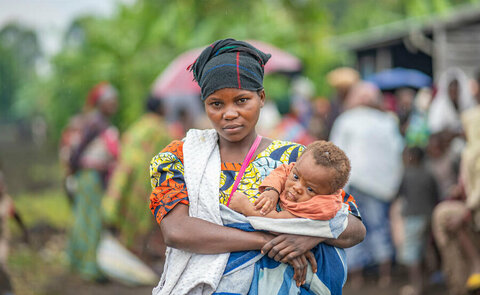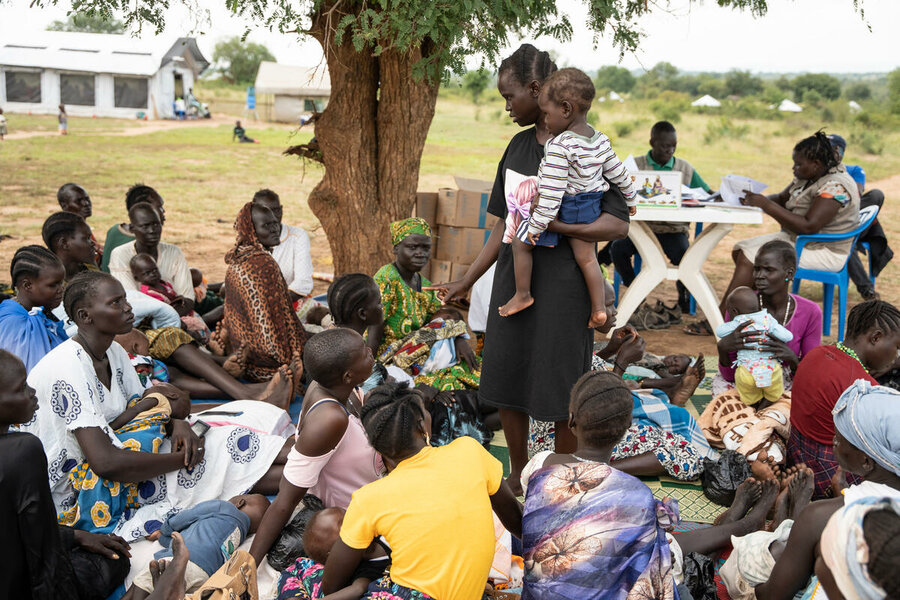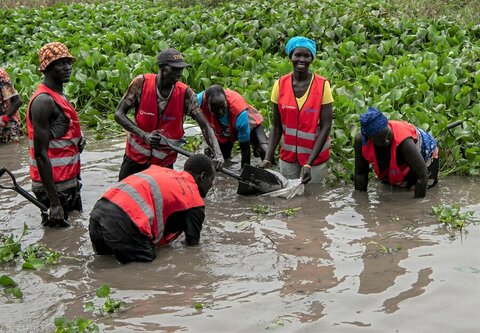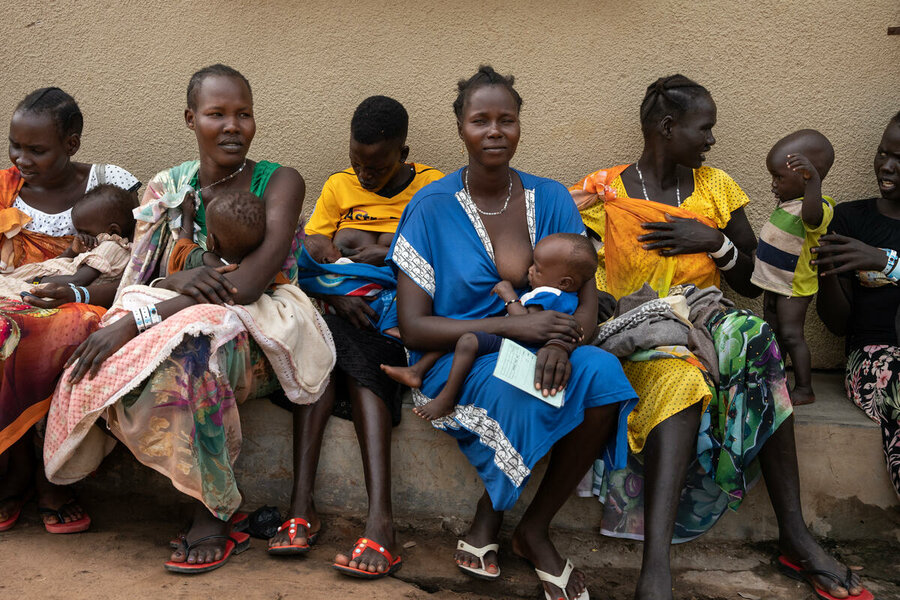‘I feel like the proudest mother in the world’: WFP supports breastfeeding in Uganda

Christine, her son, and her mother are among 100,000 refugees, mostly women and children, living in a camp in north-western Uganda, served by the World Food Programme and its partners.
“I feel like the proudest mother in the world when I breastfeed him,” she says, cradling her one-year-old, Alvin, on the front step of her tin-roofed house.
Many like her in the camp are from South Sudan, a country grappling with conflict and weather extremes where two-thirds of the population – nearly 8 million people – suffer severe hunger.
‘Breastfeeding is a lifeline’: Women in DRC, South Sudan and Syria talk nutrition

“I know breastfeeding him will help him grow into a strong, healthy, and intelligent boy. He is my future,” she says.
Each morning, with Alvin tied to her back, she makes her way to the local health centre, a few minutes' walk from her house. There, she is greeted by a small group of women, most of whom have tiny babies.
Christine earns a small income here as a community worker, mentoring fellow breastfeeding mothers. She wants to give her son the best start in life and to help other women do the same.
Breastfeeding is always important, but in such fragile settings, it’s a lifeline. It not only provides all the nutrients a baby needs for the first six months of life, but it’s also free of charge and always available!

Uganda hosts more refugees than any other country in Africa. In 2016, when Christine was 25, a college student and aspiring teacher, rebels attacked her hometown of Yeyi, in South Sudan.
Even though her father was killed during their escape, her husband decided to return.
Last year, while heavily pregnant, Christine became one of 13,000 pregnant and breastfeeding women (from both refugee and host communities) to receive Swedish-funded NutriCash. The project, for WFP collaborates with UNICEF, provides US$13 (48,000 shillings) per month to help meet food and nutrition needs, and US$4 that is put into savings.
Dyke repairs engineer hopes for people fleeing floods and facing hunger in South Sudan

Christine has used some of her savings to plant avocado trees and cassava. She plans to go back to school one day and become a teacher. She hopes her savings will make this a reality. Other women use the money to buy goats and pay for school fees.
“By supporting breastfeeding mothers, through cash and nutrition assistance and counselling, we are breaking a vicious poverty cycle and giving the opportunity to these mothers to send their kids to school,” says Abdirahman Meygag WFP country director in Uganda. “They can invest in their small businesses and become fully self-reliant sooner rather than later.”
After receiving nutrition training from WFP’s partner organization, Save the Children, Christine started supporting women to breastfeed.

“Some women, especially younger mothers, are often scared to breastfeed. Often, they don’t know how to place their babies and they want to give up because it’s too painful,” Christine says. “They have a lot of chores that cause stress, and they don’t produce enough breastmilk.”
Each week, Christine and members of the Joy Care Group come together for friendship, to share information on breastfeeding, and to support and comfort each other. The women gather under the shade of a tree, holding their babies in their laps as they share their struggles, worries and fears. From time to time, the women breastfeed their young babies.
NutriCash is part of the Swedish-funded Child Sensitive Social Protection Programme, under which WFP collaborates with UNICEF and the Government of Uganda. Breastfeeding is one of the simplest, most innovative and most cost-effective ways of ensuring that children survive and thrive. Breastfeeding has wide-ranging benefits and can help to prevent infant death, childhood illness.
